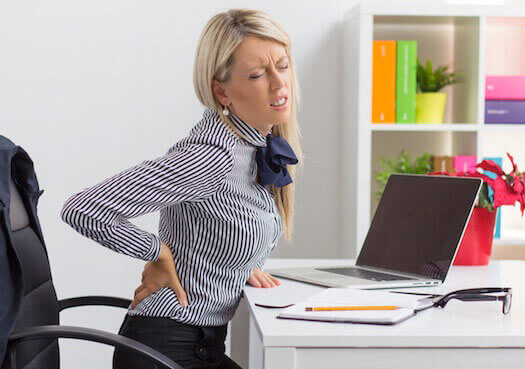
The regular shakes and jolts that the bones of the back experience on a daily basis are absorbed by the discs in between the individual vertebra that make up the vertebrae. When the soft inner core of one of those discs pushes through the hard outer layer of the disc, it’s often referred to as a “slipped disc,” a common name for a herniated disc.
Diagnosing a Slipped Disc
It’s possible to have a slipped disc with little to no pain or discomfort. However, most people experience some degree of discomfort because the herniated disc will be putting pressure on nearby nerves. Board-certified spine physicians diagnose slipped discs by identifying symptoms, which may include:
- Pain and numbness (often concentrated on one side of the body)
- Pain or discomfort aggravated by certain movements
- Pain worsening at night
- Tingling or burning sensations (in the affected area of the back)
Treating a Slipped Disc
A slipped disc rarely requires emergency treatment or spinal surgery unless there are serious symptoms associated with the disc pressing on certain nerves, such as loss of bladder or bowel control, weakness in the arms or legs, and inner or upper thigh numbness. Typical treatments for a slipped disc include:
- Lying flat and resting (for a few days only since very little movement can weaken muscles supporting the back)
- Shifting positions (lying on the back with feet elevated tends to offer relief)
- Cold compresses
- Anti-inflammatory medications
- Muscle relaxants
There is no one single cause for a slipped disc. The outer portion of the disc can naturally become weak with age, although people in the 35 to 45-year-old range tend to be most affected by slipped discs. It’s also possible for a herniated disc to result from being overweight, leading a relatively sedentary lifestyle or performing a physically demanding job requiring a lot of heavy lifting.
If you have been diagnosed with a slipped disc and are seeking a second opinion or treatment options, call (310) 828-7757 and request an in-person consultation with The Spine Institute Center for Spinal Restoration. Along with conservative methods, our surgeons can recommend procedures like decompression, which can reduce the pressure in the spinal canal caused by a slipped or herniated disc. Reach out to us today – we look forward to hearing from you!